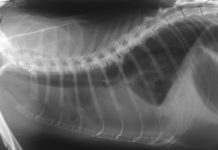Cats do not vary in size as much as the dogs do. Nevertheless, there may be a bit of a difference in between cat breeds. There are some cats that are muscular and small, some are lean and long, some are also solid and large. It may be narrowed down, yet it’s still reliant on the build of the cat. Moreover, in this article, we are going to discuss about the average cat weight. Additionally, if you want to learn more about this are more facts about it, feel free to give this article a read.
Average Cat Weight: What is it?

About 25 percent of the cats are overweight. In actuality, in Britain alone, about 50% of their cats are overweight, as well as obese. Furthermore, well, just like in humans, cats tend to be overweight because they eat too much and exercise too less. Most especially the housecats that stay inside more often are overweight. Moreover, this phenomenon actually results in the circumstance that the cats die in the early or younger age. Furthermore, the normal cat weight actually varies on various factors, including the age, breed, and sex. Generally, we assume that the average cat weight is about 3.5 kilograms or at 7.7 pounds.
The average cat weight is as follows:
| Small to medium-sized cats or breeds | 4-6 kilograms or 8.8-13lbs. |
| Large-sized cats or breeds | 6 to 11 kilograms or 11-24lbs. |
Average weight of kittens
If you have kittens, it is important to know when they are in good shape or not. Additionally, below is a tabular representation of the ideal weight of kittens per week.
| Age in Weeks | Average Weight in Pounds |
| 1 | 0.45 |
| 2 | 0.63 |
| 4 | 0.95 |
| 6 | 1.32 |
| 8 | 1.79 |
| 12 | 2.65 |
| 18 | 4.23 |
| 25 | 6.17 |
| 40 | 7.28 |
If you are really anxious about your kittens’ weight, it is the best thing to pay your vet a visit -that’s important!
Weight Variations
Saying that all cats must weight an X amount is like saying that all cars must get X miles to the gallon. Moreover, various factors affect the average cat weight. This includes whether they are neutered or spayed, their overall health and their breed.
Moreover, on an average, a healthy cat weight varies from as low as 5lbs for Siamese to as high as 25lbs for Maine Coon. Moreover, the indoor cats may pack on a several more pounds than the outdoor ones. This is because it does not take much athletic deftness or cunning to sneak up on food dishes.
How to determine if your cat is at a proper weight?
The numbers on the scales may actually give you a general image of the weight of your cat. Nevertheless, as we have already said, cats come in all sizes and shapes. Therefore, rather than focusing wholly on several numbers on the scales, it is better to determine when your cat is underweight or overweight by looking at it and feeling it.
- Vets usually regularly weight cats during a vet visit. It is a great idea to create a note of your cat’s weight, especially when it is fit and well. Moreover, this is for you to use this number in determining any weight loss or weight gain in the near future. Furthermore, you can make a file for your cat. Additionally, this is where all of its vet papers will be stored. Further, you can keep all of his healthy weight right there.
- You must be able to feel the spine when you run your fingers through your cat’s back. However, it must not be that much obvious. Moreover, if you are to stand up behind you cat, you must be able to see a torso. Furthermore, an overstated tuck is actually a sign that your cat is underweight. On the other hand, the overweight tuck have no tuck at all.
- You must be able to feel the ribs when you run your hands through the sides of the cat. Nonetheless, there should be a thin covering of fat above them. Moreover, the ribs that may easily be seen can be an indicator of a cat being underweight. Additionally, if you cannot feel the ribs, your cat might be overweight.
Whichever way, you must check on your vet to determine when there is a medical reason for your cat being overweight or underweight.
Causes of Cat Losing Weight
Here are some of the most common causes of weight loss in cats:
- Stress that may lead to loss of appetite,
- Infection in the uterus –pyometra,
- An inflammation of the pancreas because of pancreatic enzymes starting to breakdown and digest the organ –pancreatitis,
- Liver condition,
- Inflammatory bowel disease,
- Heartworm disease,
- Feline leukemia virus,
- Feline immunodeficiency virus,
- Exocrine pancreatic insufficiency,
- Intestinal parasites like giardia, cryptosporidium, as well as roundworm,
- Dental issues that make eating hard, as well as painful,
- Various types of cancer that may lead to weight loss, as well as death
- Addison’s disease,
- Kidney conditions like glomerulonephritis, chronic kidney disease, as well as acute kidney disease,
- Diabetes mellitus,
- Hypothyroidism, as well as
- Inadequate amount of food due to inter-cat bullying, underfeeding, or insufficient diet
Causes of Cat Gaining Weight
Moreover, here are some of the most common reasons as to why a cat gains weight:

- Pregnancy,
- Hypothyroidism,
- Acromegaly, as well as
- Overfeeding
How much should a cat eat?
More so, here are some factors in determining how much a cat must eat. Furthermore, a kitten will be able to eat more often, yet smaller meals. A lactating or pregnant cat might need to eat more than the adult cat. An active and young cat might consume more than an inactive cat. Hence, there are actually no fast and hard rules as to how much should a cat eat.









